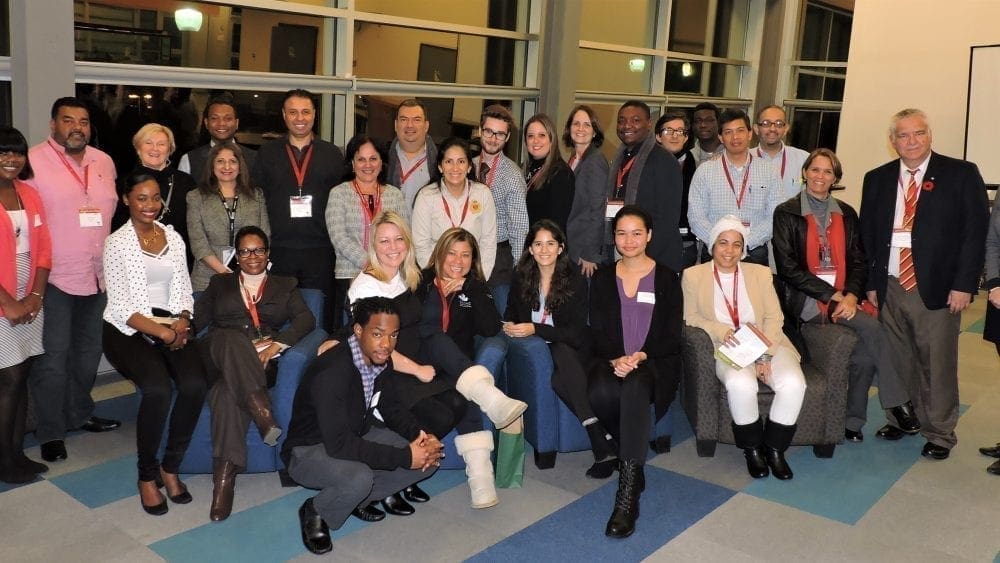Bridging the Gap
Beyond factors separating higher education institutions – whether it’s due to geopolitical or other constraints – collaboration missions create ideal conditions to meeting key stakeholders in international education.
As part of Global Affairs Canada’s Emerging Leaders in the Americas Program (ELAP) collaboration mission the international scholarships team at CBIE gathered institutions from Latin America and the Caribbean to support their international relationship building efforts. What we got from this experience is a unique understanding in the area – we learned a lot about the diverse needs of Canadian and international representatives and the role of such an event for partnership building as a service offered by CBIE to our members. In short, the collaboration mission truly is a bridge to the rest of the world.
How to visit 12 countries in a day
First, a few details. Chantal Bolduc and I, Nicholas Hardy, directed a delegation comprised of 16 delegates coming from 12 Latin American and Caribbean countries (Bahamas, Belize, Cuba, Dominican Republic, Ecuador, Guatemala, Haiti, Jamaica, Nicaragua, Panama, Peru, Uruguay), from November 7-16 2016, as part of Global Affairs Canada’s ELAP Program. Following an ambitious programming, we visited 10 institutions (Holland College, University of PEI, CCNB (Dieppe), Université de Moncton, ITHQ, Collège Montmorency, UQAM, École Nationale de Théâtre, Cégep Limoilou, Université Laval) in 4 provinces (PEI, NB, QC, ON), we organized many networking events, a diplomatic reception, and participated in CBIE’s 50th Annual Conference. This year was focused on tourism and heritage. We also wanted to encourage international mobility development at the college level.
Our group’s diversity and the many interactions with Canadian peers allowed us to learn valuable lessons related to the success of this initiative. Institutions have differing objectives, so we must reassess partnerships to get the results that both parties want to achieve. Innovation is a must for this. On the other hand, despite challenges pertaining to Latin American and Caribbean institutions (related to infrastructure, economy, global rankings, etc.), close contact with the delegates highlights their institutional advantages related to the topological specificity of their expertise, among others. Also, partnership development is first and foremost human relationship development. Finally, this mission has a decisive influence since it gives Canadian and international representatives the tools they need to spark off successful meetings: establishing collaborative and sustainable relationships.
The Proof is in the Pudding
The collaboration mission also resulted in direct outcomes. Before the end of the mission, three agreements were signed between the University of Prince Edward Island, Universidad Da Vinci de Guatemala, the Institut de Formation Technique et Professionnelle (Haiti) and the Galen University (Belize). After the event, the Bahamas Technical and Vocational Institute signed an agreement with the Georgian College. Several delegates from the mission are still negotiating new agreements with their Canadian partners. To be continued…
Nicholas Hardy is a Program Coordinator (Events) with the International Scholarships Program of Global Affairs Canada at CBIE



Comments are closed.